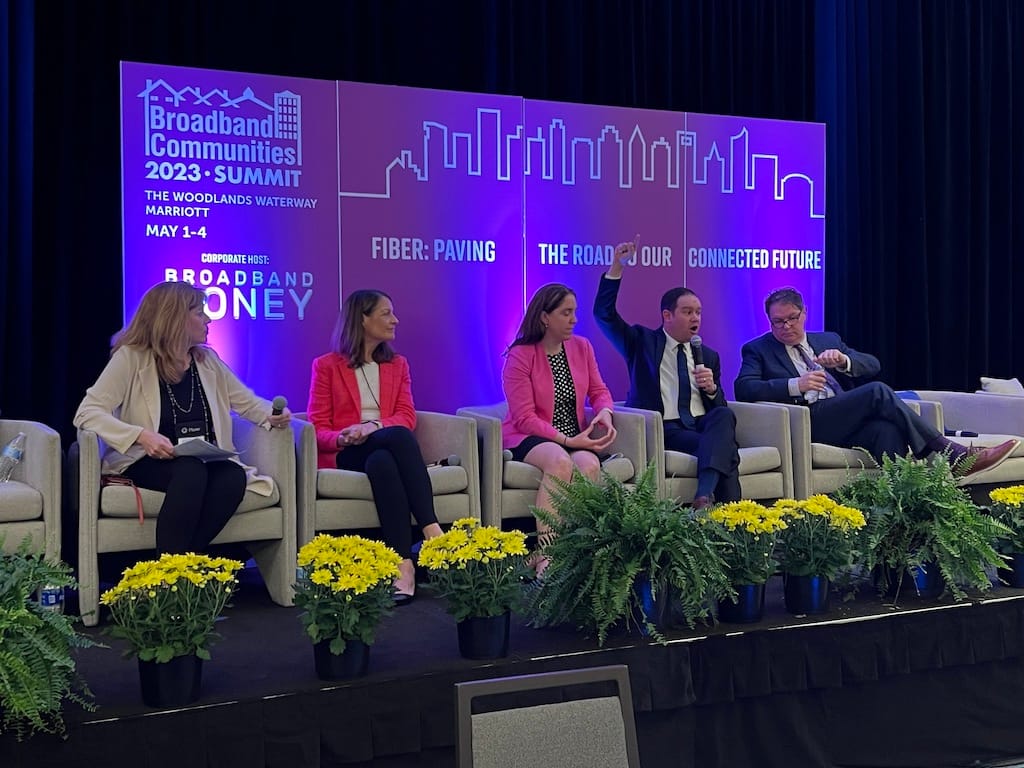Interagency Coordination Unique in History, say Federal Representatives
Coordination cross-agencies for broadband project deployment is unique, conference hears.

HOUSTON, May 2, 2023 – The coordination between federal agencies is unique in history, said representatives from the Federal Communications Commission, National Telecommunications and Information Administration, the Department of Treasury, and the Rural Utilities Service at a Broadband Communities event Tuesday.
Federal broadband grant program administration is split between agencies: the FCC runs the Affordable Connectivity Program; NTIA the Broadband Equity, Access, and Deployment program; RUS runs the ReConnect program; and the Treasury is allocating dollars for the Capital Projects Fund.
The nature of the grants represents a possibility that programs will intercept and disrupt one another. Agencies responded to this threat by arranging a memorandum of understanding in May of 2022 in which the FCC, NTIA, US Department of Agriculture, and the Treasury agreed to share information about and collaborate regarding the collection and reporting of data relating to broadband deployment.
Granular data about the different broadband deployment projects is shared across agencies which allows the programs to complement one another and coordinate to reach the Biden Administration’s goal of connecting every American to high-speed internet.
The voluntary MOU ensures that there remains an active dialogue between the agencies, said Joseph Wender, director of the Capital Projects Fund at the US Department of the Treasury. The deeply technical conversations that agencies are currently participating in are a testament to the improvement that has been made in the agencies’ communication, he said.
Agencies are traditionally very siloed, Wender continued. In fact, agencies have been unable to develop sustainable interagency relationships until now despite decades of encouragement to form such a relationship from Congress, added Hilda Legg, former director of the Rural Utilities Service.
“Not all MOUs are created equal, but this is one that is really working,” said Trent Harkrader, chief of the Wireline Competition Bureau at the FCC.
At the end of the day, each agency is primarily concerned with connecting Americans to high-speed internet, agreed panelists.










